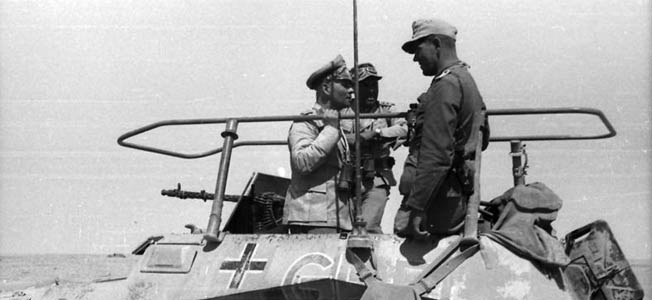
Erwin Rommel
Operation Crusader: Erwin Rommel Learns His Lesson
By Robert HaymesBy the time of the Crusader battles in late 1941, the German panzer forces in North Africa had developed a sophisticated combined-arms doctrine. Read more

Erwin Rommel
By the time of the Crusader battles in late 1941, the German panzer forces in North Africa had developed a sophisticated combined-arms doctrine. Read more
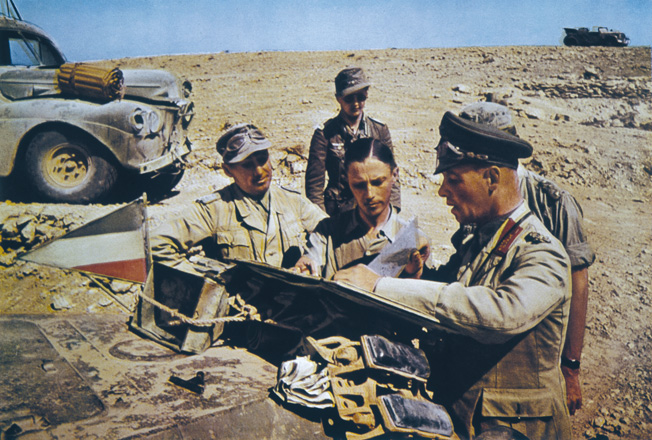
Erwin Rommel
Born on November 15, 1891, in Heidenheim, Germany, Erwin Rommel was a hero of World War I, receiving the Pour le Mérite, or Blue Max, for his actions on the Italian Front. Read more
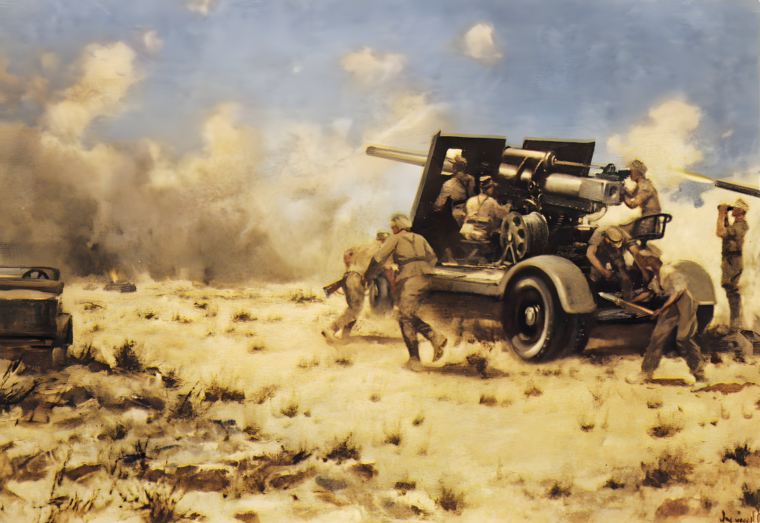
Erwin Rommel
On the afternoon of November 23, known as Totensonntag to the Germans, General Ludwig Crüwell, commander of the Afrika Korps, decided to launch both of his armored divisions at the box being defended by the 2nd South African Brigade which had laagered just south of the contested airfield at Sidi Rezegh. Read more
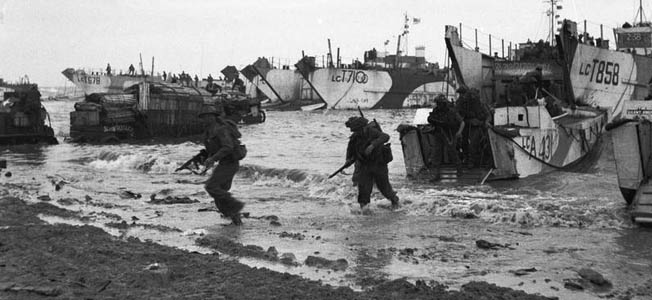
Erwin Rommel
Commonly known as D-Day, the Western Allies invaded Nazi-occupied Europe during World War II on June 6, 1944. Read more
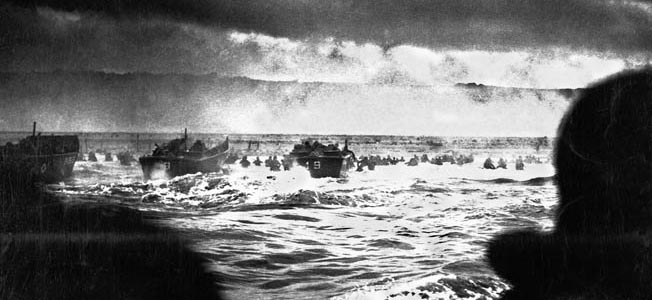
Erwin Rommel
The largest amphibious invasion in history began on the night of June 5-6, with the roar of C-47 engines preparing to take off , and climaxed on the beaches of Normandy. Read more
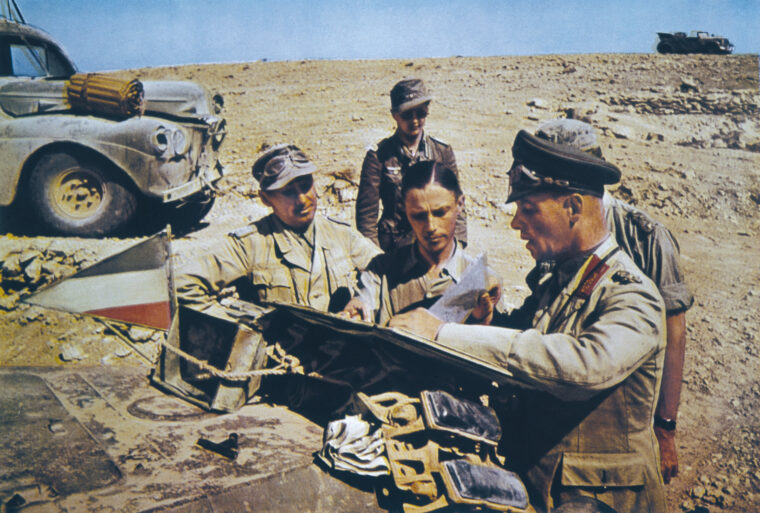
Erwin Rommel
Even before the end of World War II, German General Erwin Rommel’s fame was such that he was already being elevated into the Valhalla of such legendary warriors as Hannibal against the Roman Empire, Napoleon during his defensive campaigns of 1813-1814, and Robert E. Read more
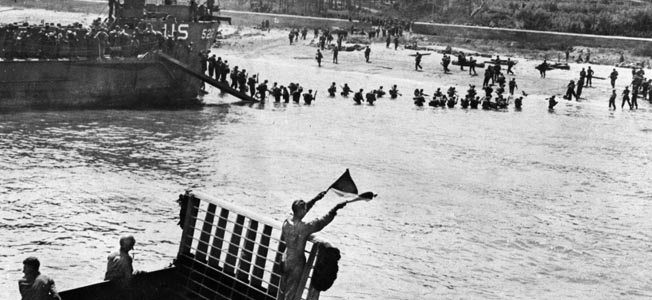
Erwin Rommel
Early in 1944, German Field Marshal Erwin Rommel, the defeated hero of North Africa and now head of Army Group B in France, was tasked with strengthening the Atlantic Wall defenses against Allied invasion. Read more
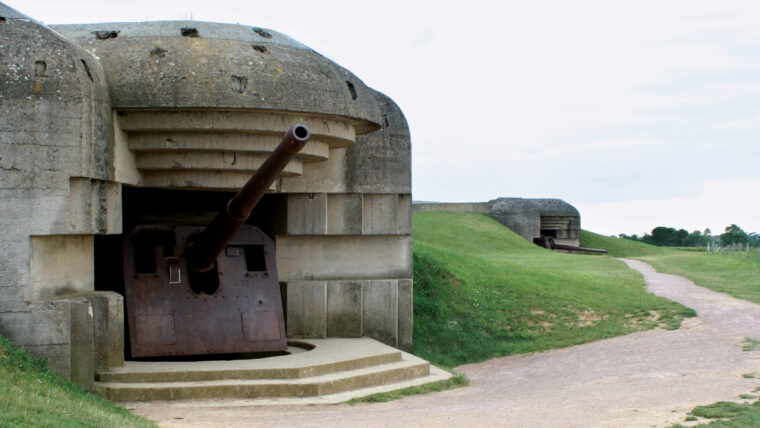
Erwin Rommel
After overrunning France and other Western European countries in 1940, Adolf Hitler was certain that the Allies would one day attempt to invade the European continent and attack through the occupied countries to destroy his regime. Read more
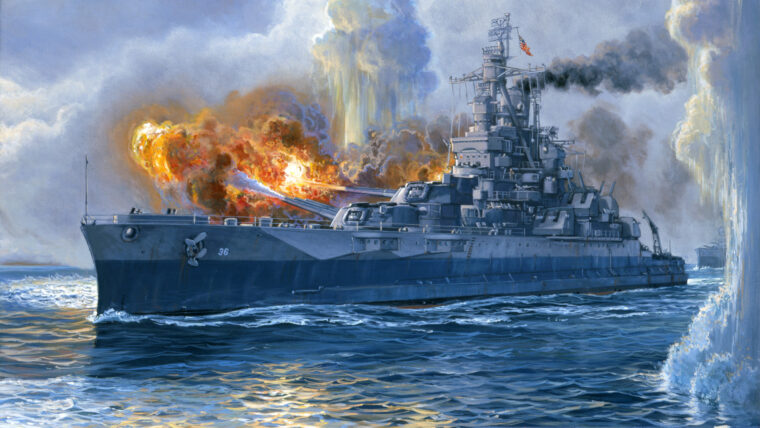
Erwin Rommel
I am of Polish, Irish, and American Indian descent and grew up in the small (population 3,800) northern Illinois town of Geneva. Read more
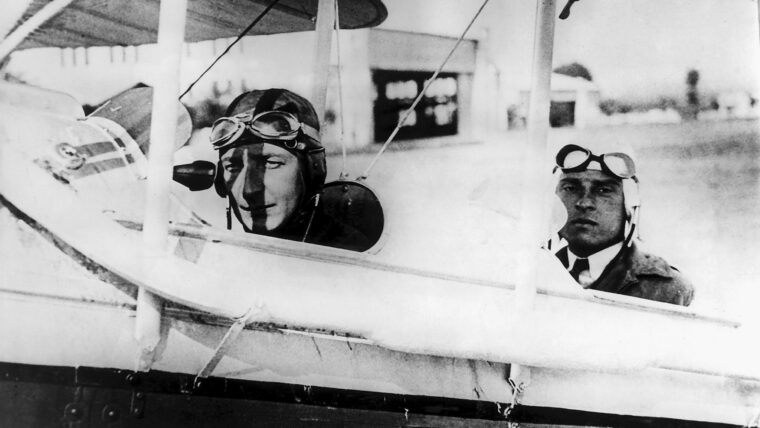
Erwin Rommel
On the morning of May 15, 1942, a strange motorcade rolled out of Campo Four, located 170 hot, dusty miles south of the Italian base at Jalo oasis in northeast Libya. Read more
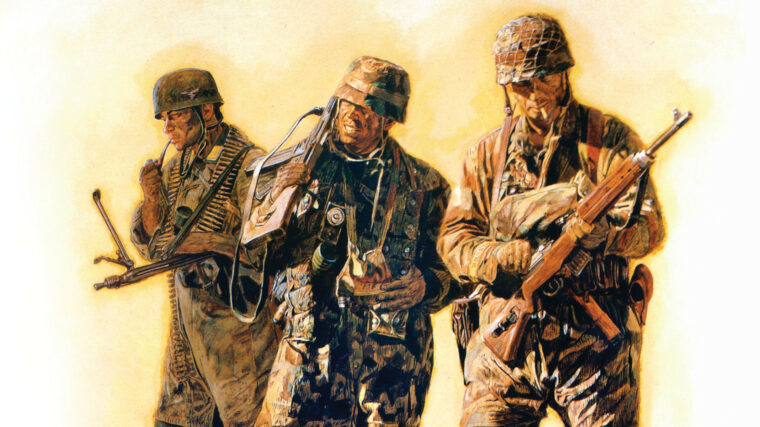
Erwin Rommel
Background: Fallschirmjäger Regiment 6 was organized in February 1943, under the command of Major Egon Liebach. It was part of the 2nd Fallschirmjäger Division and was stationed in France, where it trained in parachute and glider operations. Read more
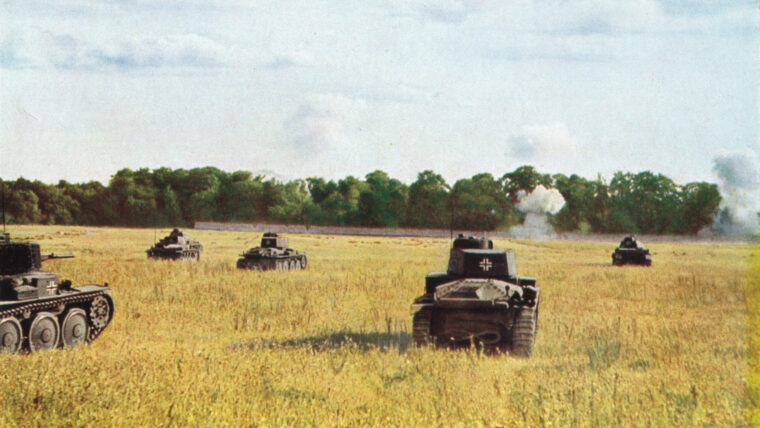
Erwin Rommel
The ancient Chinese military strategist Sun Tzu wrote, “Go forth to the enemy’s positions to which he must race. Read more
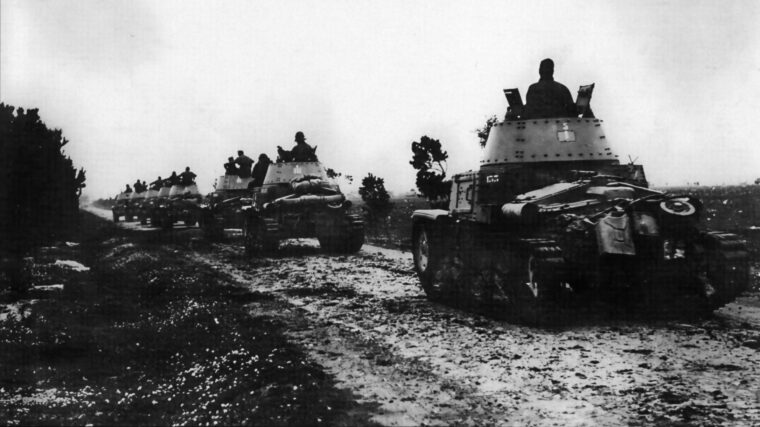
Erwin Rommel
Bradley could have been referring to German General Erwin Rommel. While Rommel was winning the war of desert armor tactics during 1941-1942 in the North African Campaign, he was losing the war of logistics. Read more
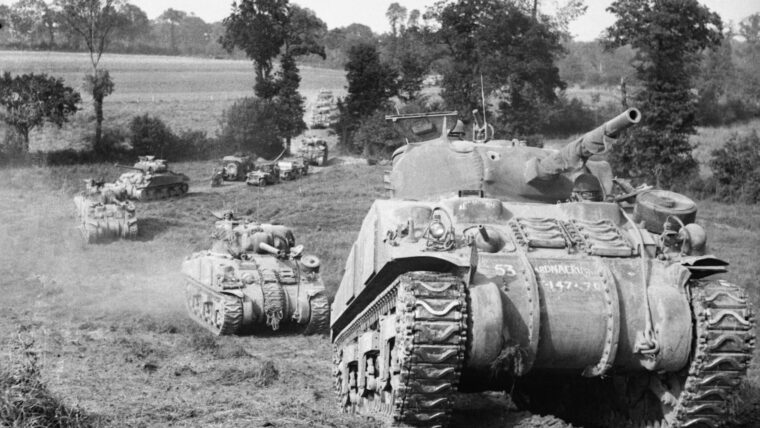
Erwin Rommel
It was a letter in the London Times that caught the attention of British wartime Prime Minister Winston Churchill. Read more
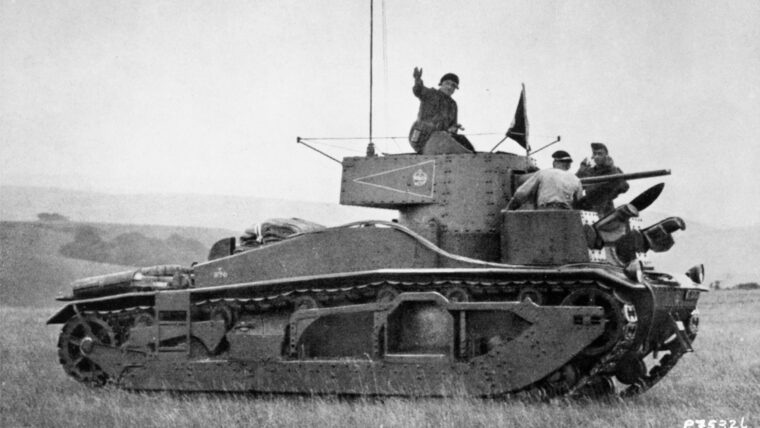
Erwin Rommel
An army that will be poised for victory requires élan, military intellect, a penchant for tactical and strategic innovation, and the zeal to use the most qualified individuals for training and leadership. Read more
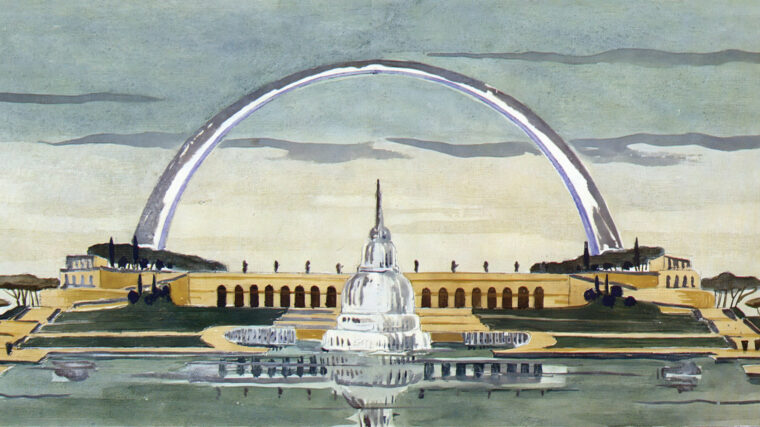
Erwin Rommel
Visitors to a certain part of Rome today may not even be aware that they are walking in an area that came about because of an architectural vision of Benito Mussolini, Italy’s infamous fascist dictator. Read more
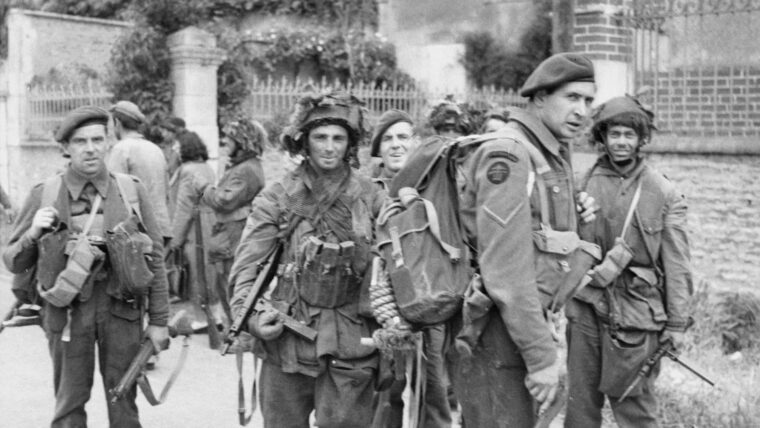
Erwin Rommel
After successfully fighting seasickness during the crossing of the English Channel, Lance-Corporal Ted Brooks of Number 48 (Royal Marine) Commando arrived on Nan Red Beach—which formed the left flank of Juno Beach—on the morning of June 6, 1944. Read more
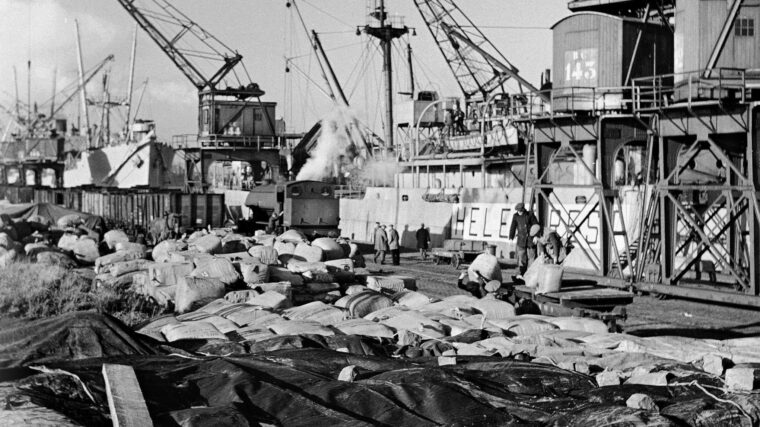
Erwin Rommel
After the war in Europe was won, General Dwight D. Eisenhower had many opportunities to review various campaigns with the leaders of the Soviet Army–– including even Joseph Stalin himself. Read more
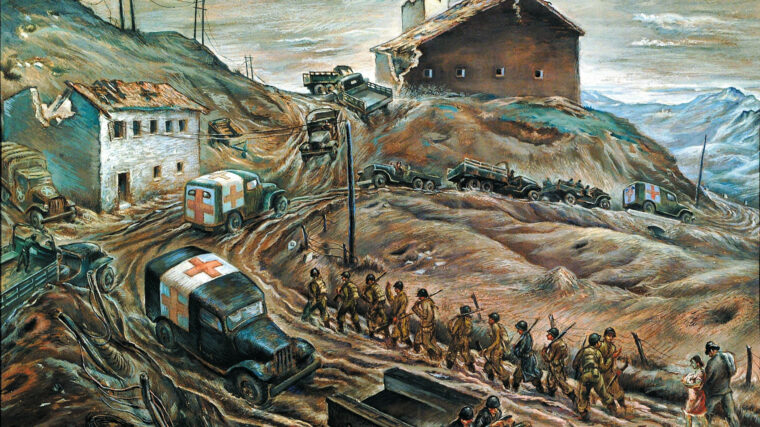
Erwin Rommel
The reason for it was unthinkable. The Gothic Line, the last line of defense in Italy, was necessary, but senior German commanders had not been concerned that it would ever be contested by Allied forces. Read more
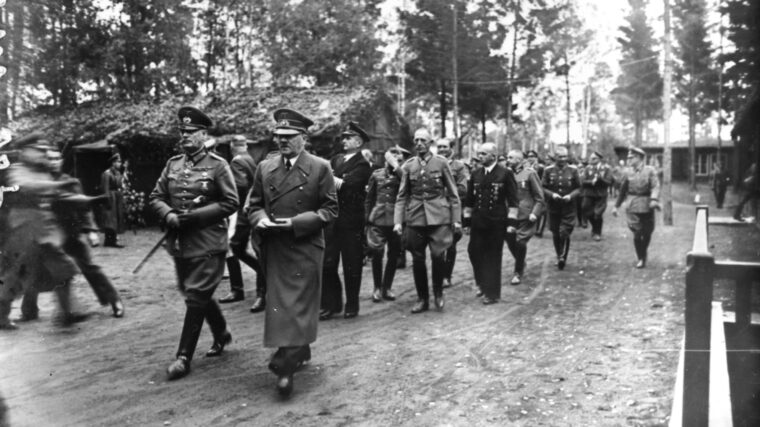
Erwin Rommel
With the end of World War I, the German Army had not been defeated in the field. Read more